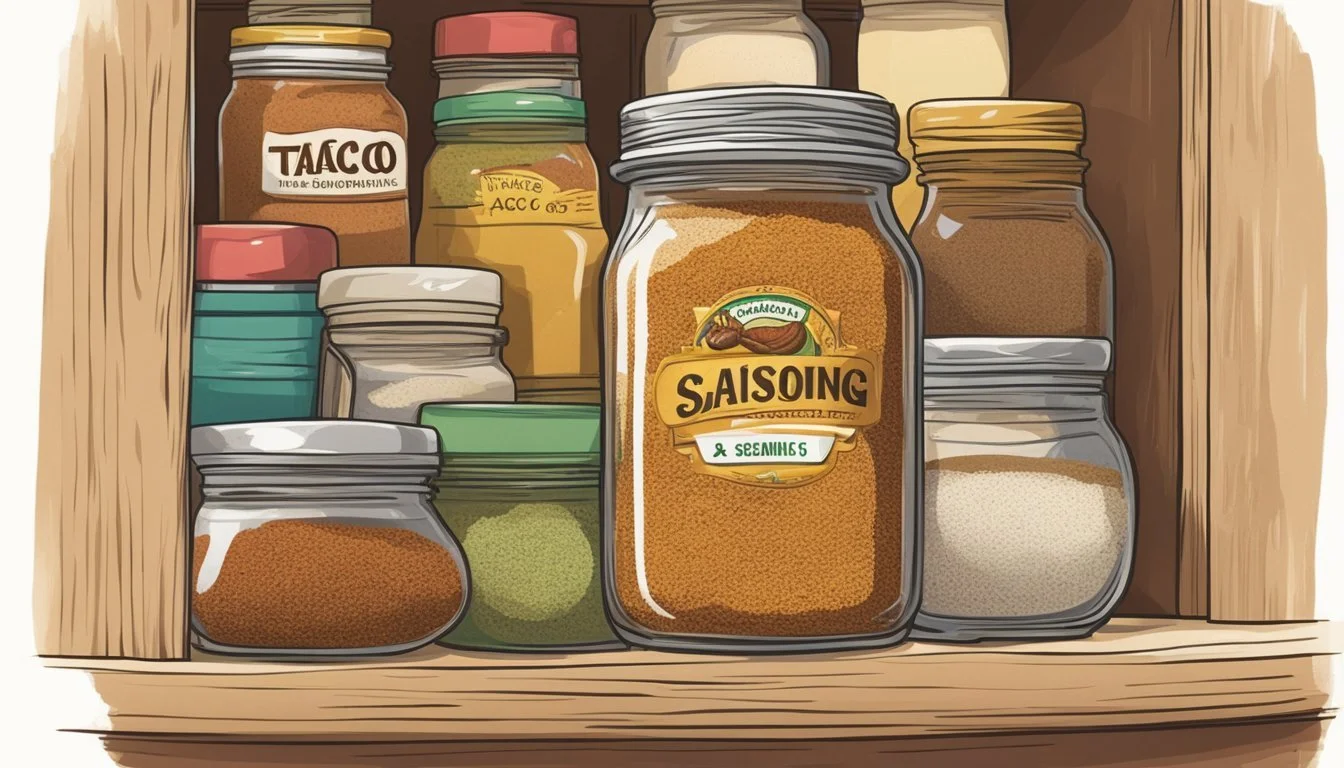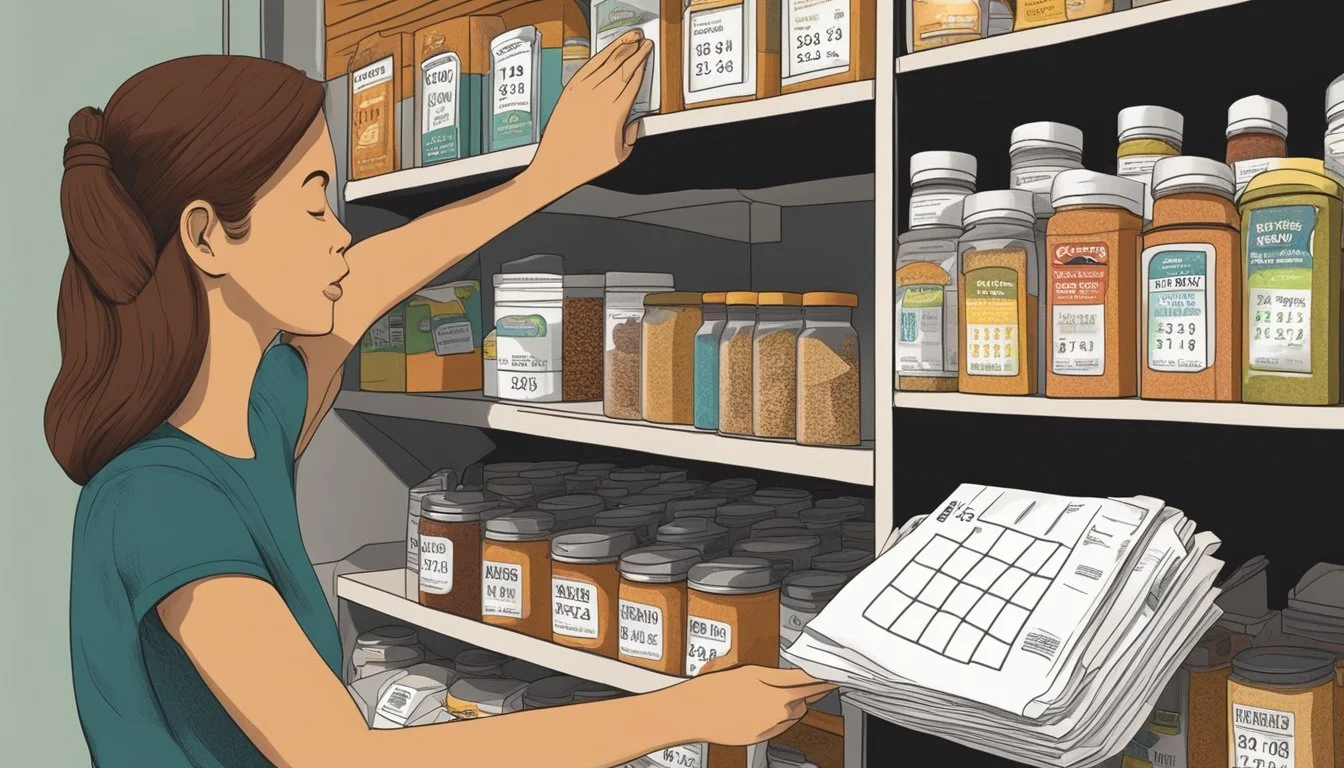Does Taco Seasoning Expire?
Understanding Shelf Life and Storage Tips
Taco seasoning is a staple in many kitchens, offering a convenient blend of spices that bring the bold flavors of Mexican cuisine to a variety of dishes. Yes, taco seasoning does expire, although it typically does not spoil in a way that is unsafe to consume. The primary concern with expired taco seasoning is a decline in flavor and potency over time.
Spices in taco seasoning are usually dried herbs and spices, which means their risk of bacterial growth is minimal. Even though the seasoning might not be at its freshest after the expiration date, it can still be used with some adjustments. For instance, mixing expired taco seasoning with fresh herbs and spices can restore some of the lost flavor.
Expired taco seasoning can also be repurposed in creative ways, such as being used as a dry rub for meats, vegetables, or tofu. Proper storage in an airtight container helps maintain the quality of the spice blend for as long as possible.
Understanding Taco Seasoning
Taco seasoning is a flavorful blend of spices that adds a distinct taste to various Mexican dishes. It is known for its versatility in a wide range of recipes, making it a staple in many kitchens.
Components and Flavor Profile
Taco seasoning typically consists of a mix of chili powder, cumin, garlic powder, paprika, oregano, onion powder, salt, and pepper.
Chili powder and cumin are the primary spices, giving it a warm, earthy base. Paprika adds a mild sweetness, while garlic powder and onion powder provide depth and savory notes. Oregano introduces a hint of freshness, and salt and pepper round out the seasoning for balance.
Each ingredient plays a crucial role in creating the seasoning's signature flavor, which is both robust and aromatic. This carefully curated blend of spices enhances the taste of tacos, burritos, enchiladas, soups, and various other dishes.
Versatility in Cooking
One of the key strengths of taco seasoning is its versatility. It can be used beyond traditional tacos, seamlessly integrating into a variety of recipes.
For example, it can be sprinkled over meats or vegetables before grilling or roasting, serving as a flavorful dry rub. In soups and stews, it adds a rich, spicy dimension to the broth.
It's also perfect for enchiladas and burritos, bringing out the authentic taste of Mexican food. Cooks often find it handy to mix taco seasoning into homemade spice blends or sauces, enhancing the overall flavor profile of the dish.
This DIY approach can also be a good use for spices nearing their expiration date. Whether in traditional Mexican cuisine or experimental dishes, taco seasoning remains a valuable and adaptable ingredient in the kitchen.
Shelf Life and Expiration
Taco seasoning, like many spices, has a finite shelf life that can affect its potency and flavor. Understanding the indicators of shelf life and the factors that influence it can help ensure the seasoning is used at its best quality.
Shelf Life Indicators
Taco seasoning typically has a shelf life of 2-3 years. The expiration date on the package serves as a guideline for peak quality and flavor.
The potency of the spices decreases over time. Once past the expiration date, the seasoning may still be safe to use, but it might not impart the desired flavor intensity. Look for changes in color and aroma, which can indicate a loss of freshness.
To test for potency, rub a small amount of seasoning between the fingers. If the aroma is considerably weaker than when it was new, it may be time to replace the seasoning.
Factors Affecting Shelf Life
Several factors can impact the shelf life of taco seasoning. Exposure to air, light, and moisture can accelerate the degradation of spices.
Storage conditions play a crucial role. Keeping the seasoning in an airtight container, away from direct light and in a cool, dry place, can help maintain its quality.
Frequent opening and closing of the container can introduce humidity, which can further decrease the seasoning's shelf life.
Packaging also matters. Seasonings in tightly sealed pouches or jars tend to last longer than those in loosely closed containers.
By considering these factors, one can maximize the shelf life and enjoy taco seasoning at its best quality.
Storage Recommendations
Proper storage is essential for maintaining the quality and flavor of taco seasoning. To ensure it lasts as long as possible, consider the environmental factors and storage methods that will help extend its shelf life.
Ideal Storage Conditions
Taco seasoning should be stored in a cool, dry place to maintain its potency and flavor. The best locations include pantry shelves or kitchen cupboards away from direct sunlight and heat sources. These conditions help prevent the degradation of the spices and herbs within the seasoning mix.
An airtight container is crucial to keep out moisture and humidity, which can lead to clumping and loss of flavor. Glass containers like mason jars are excellent options, but any well-sealed container will do. Make sure each container is properly labeled with the date of purchase to keep track of freshness.
Tips for Extending Shelf Life
To extend the shelf life of taco seasoning, always use airtight containers. This not only keeps the seasoning fresh but also prevents it from absorbing odors from other foods.
Avoid storing taco seasoning near the stove or other appliances that generate heat and moisture. Instead, opt for a location that remains consistently cool. When using the seasoning, make sure utensils are dry to prevent introducing moisture.
Regularly check the seasoning for signs of spoilage, such as changes in color, texture, or smell. If any of these signs are present, it may be time to use up or replace the seasoning. Proper storage methods can help taco seasoning last up to 2-3 years, retaining its quality and flavor.
Spotting and Handling Expired Seasoning
Identifying signs of expired taco seasoning and knowing how to handle it can ensure that you maintain food quality and safety. Specific indicators, such as changes in color, texture, and smell, can signal when the seasoning is past its peak.
Signs of Spoilage
Expired taco seasoning often loses its vibrant color and may appear dull or discolored. This change can indicate loss of potency.
Look for clumps or uneven texture, as moisture can cause the seasoning to clump together, hinting at spoilage.
An off smell is another key indicator. Fresh taco seasoning typically has a strong, distinct aroma, whereas an expired one might smell stale or musty.
Check for mold, although it's rare, it can grow if the seasoning has been exposed to moisture. Mold appears as green or white fuzzy spots.
The flavor profile will also diminish. Using a small amount to test can reveal if the seasoning has lost its zest.
Safety Procedures
When handling expired taco seasoning, ensure proper storage methods. Keep it in an airtight container to minimize exposure to moisture and extend its shelf life.
If signs of spoilage, such as mold or unusual odors, are present, it’s best to discard the seasoning to avoid potential health risks.
Expired seasoning used for non-sensitive applications like dry rubs for meats or vegetable seasoning can still be safe, but be aware of reduced flavor and freshness.
Mixing expired seasoning with fresh herbs and spices can rejuvenate its taste. Always label and date the seasoning to track its freshness.
Maintaining these practices can help manage taco seasoning effectively and ensure safety in culinary uses.
Culinary Inspirations
Taco seasoning has a versatile range of culinary applications, enhancing not just traditional Mexican dishes but also introducing intriguing twists to everyday meals. Its blend of spices like cayenne, cumin, and chili powder can transform simple ingredients into flavorful experiences.
Mexican Cuisine Favorites
Taco seasoning stands at the heart of many beloved Mexican dishes. For tacos, it is a must, providing the characteristic warm, smoky flavor that defines this street-food classic. When used in burritos, taco seasoning lends depth and richness, complementing fillings like chicken, beans, or rice. It's also perfect for enchiladas, where its blend of spices permeates the sauce and filling, marrying beautifully with sour cream atop the dish.
Innovative Pairings
Taco seasoning isn’t just for traditional Mexican food. Sprinkling it over popcorn can offer an unexpected, but delightful twist, adding a zesty kick to a common snack. It's also excellent as a rub for chicken, elevating simple grilled or baked chicken with layers of flavor. Even roasted vegetables or tofu benefit from its aromatic, spicy notes, making it a handy and convenient seasoning for a variety of culinary uses.





